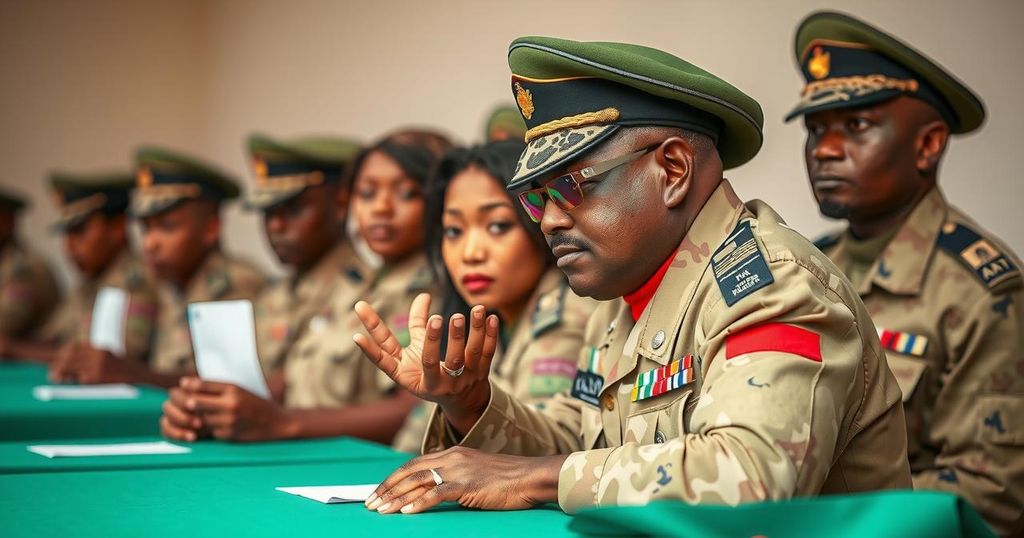Chad’s General Election: Low Turnout Amid Opposition Boycott Signals Discontent

Chad voted in a general election amid a low expected turnout due to an opposition boycott. With reports indicating only 38 percent participation, President Mahamat Idriss Deby Itno called for voter participation, while many citizens expressed disillusionment with the electoral process. The elections are deemed pivotal for the country’s transition to democracy after military rule, despite concerns over ballot integrity and political fraud.
Chad has conducted a general election amid expectations of low voter turnout following a boycott from opposition groups. The elections, which cover parliamentary, provincial, and local council positions, are being presented by the government as pivotal to ending three years of military rule. Reportedly, only 38 percent of voters participated, with officials attributing the apathy in part to cold weather. Opposition leader Succes Masra claimed that most voters adhered to their call for boycott, questioning the integrity of the electoral process.
President Mahamat Idriss Deby Itno, who ascended to power via military intervention in 2021, encouraged citizens to vote, emphasizing the historical significance of the day. Many citizens expressed disillusionment; some believed voting was futile, with construction worker Herve Natouingan stating, “there’s no real voting in Chad.” Conversely, others, like unemployed Patrice Lumumba Deoumoundou, hoped for improvements in social conditions through their vote.
Preliminary reports from Chad’s election management agency claimed impressive turnouts among military personnel and nomadic communities, where participation rates were over 72 percent and 54 percent, respectively. As with prior elections, security forces voted a day earlier for logistical reasons. Reports surfaced of missing ballots, heightening tensions between the ruling party and opposition groups, which accused the government of planning electoral fraud.
This election occurs amidst regional instability, particularly due to attacks by Boko Haram and geopolitical changes affecting Chad’s relationship with France. The government framed this electoral exercise as a significant step towards democratic transition following Deby’s takeover after his father’s lengthy rule.
International observers are present to monitor the proceedings, and polling stations will operate until late in the evening, assessing the conduct and outcome of this critical electoral process for Chad’s future.
Chad remains under military rule following the death of long-time President Idriss Deby in 2021, leading to his son Mahamat Idriss Deby Itno assuming power. The recent general election is positioned by the government as an essential vehicle for transitioning back to democratic governance. There have been significant political and societal unrest, including calls from opposition parties to boycott the election due to perceived illegitimacies in the electoral process.
In conclusion, the recent general election in Chad has revealed widespread voter apathy amidst opposition calls for a boycott, casting doubt on the election process and its integrity. Despite the government’s assertions that these elections are a moving step towards democracy, many citizens remain skeptical about the possibility of meaningful change. The situation highlights the ongoing challenges Chad faces as it navigates its political landscape following a military takeover and the pressing social and economic issues affecting its populace.
Original Source: www.wyomingnewsnow.tv







